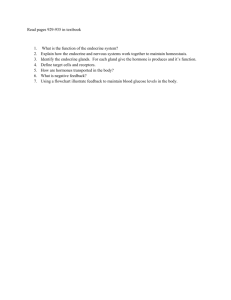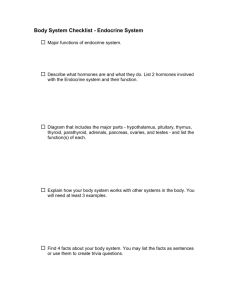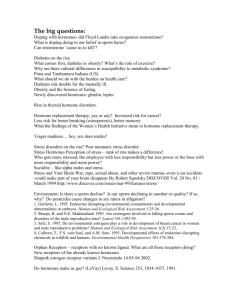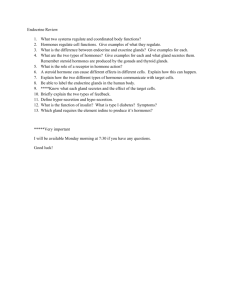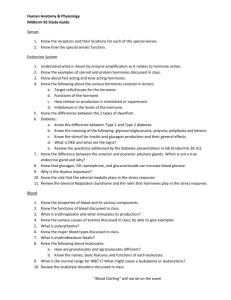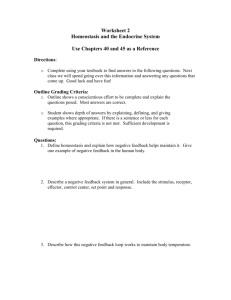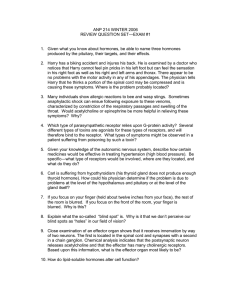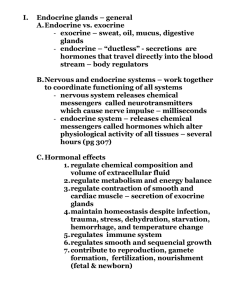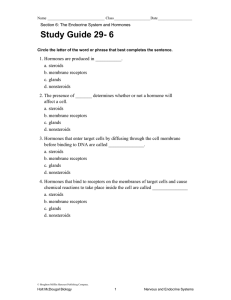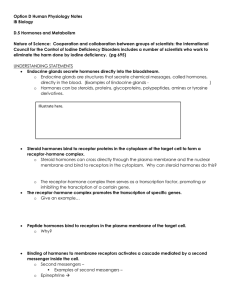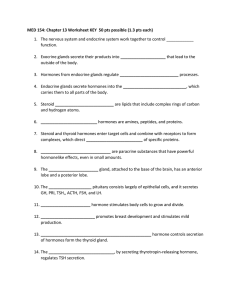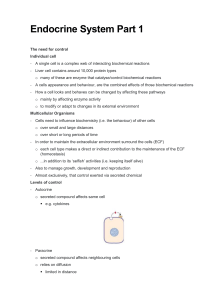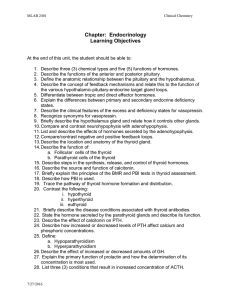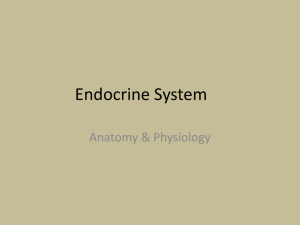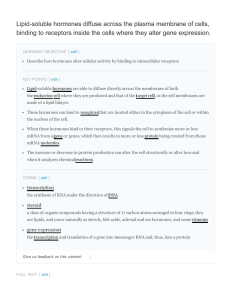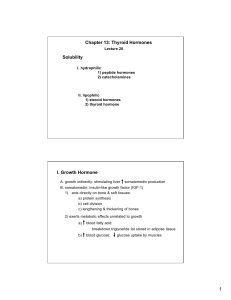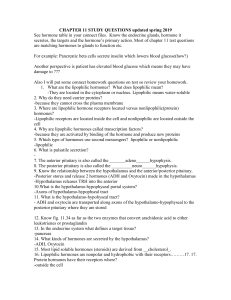Endrocrine System
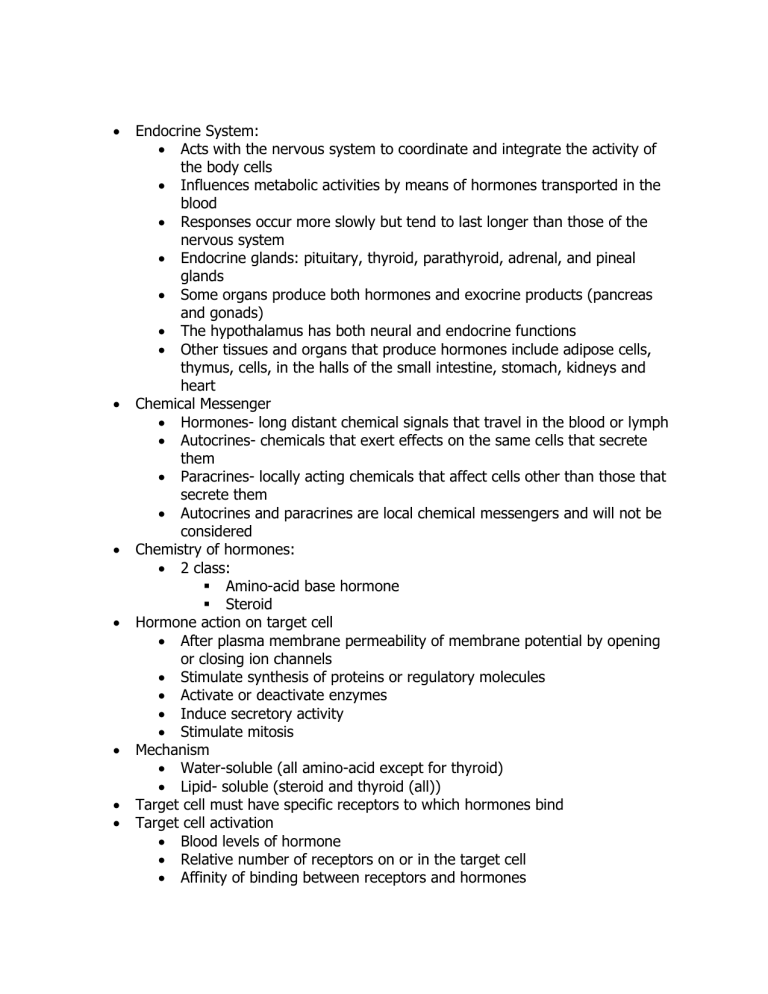
Endocrine System:
Acts with the nervous system to coordinate and integrate the activity of the body cells
Influences metabolic activities by means of hormones transported in the blood
Responses occur more slowly but tend to last longer than those of the nervous system
Endocrine glands: pituitary, thyroid, parathyroid, adrenal, and pineal glands
Some organs produce both hormones and exocrine products (pancreas and gonads)
The hypothalamus has both neural and endocrine functions
Other tissues and organs that produce hormones include adipose cells, thymus, cells, in the halls of the small intestine, stomach, kidneys and heart
Chemical Messenger
Hormones- long distant chemical signals that travel in the blood or lymph
Autocrines- chemicals that exert effects on the same cells that secrete them
Paracrines- locally acting chemicals that affect cells other than those that secrete them
Autocrines and paracrines are local chemical messengers and will not be considered
Chemistry of hormones:
2 class:
Amino-acid base hormone
Steroid
Hormone action on target cell
After plasma membrane permeability of membrane potential by opening or closing ion channels
Stimulate synthesis of proteins or regulatory molecules
Activate or deactivate enzymes
Induce secretory activity
Stimulate mitosis
Mechanism
Water-soluble (all amino-acid except for thyroid)
Lipid- soluble (steroid and thyroid (all))
Target cell must have specific receptors to which hormones bind
Target cell activation
Blood levels of hormone
Relative number of receptors on or in the target cell
Affinity of binding between receptors and hormones
